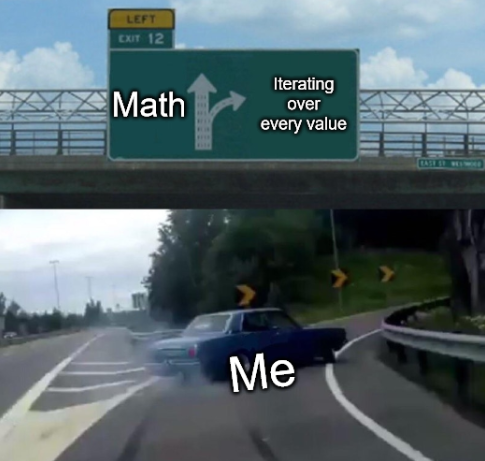this post was submitted on 06 Dec 2023
132 points (99.3% liked)
Advent Of Code
805 readers
13 users here now
An unofficial home for the advent of code community on programming.dev!
Advent of Code is an annual Advent calendar of small programming puzzles for a variety of skill sets and skill levels that can be solved in any programming language you like.
AoC 2024
Solution Threads
| M | T | W | T | F | S | S |
|---|---|---|---|---|---|---|
| 1 | ||||||
| 2 | 3 | 4 | 5 | 6 | 7 | 8 |
| 9 | 10 | 11 | 12 | 13 | 14 | 15 |
| 16 | 17 | 18 | 18 | 20 | 21 | 22 |
| 23 | 24 | 25 |
Rules/Guidelines
- Follow the programming.dev instance rules
- Keep all content related to advent of code in some way
- If what youre posting relates to a day, put in brackets the year and then day number in front of the post title (e.g. [2024 Day 10])
- When an event is running, keep solutions in the solution megathread to avoid the community getting spammed with posts
Relevant Communities
Relevant Links
Credits
Icon base by Lorc under CC BY 3.0 with modifications to add a gradient
console.log('Hello World')
founded 1 year ago
MODERATORS
you are viewing a single comment's thread
view the rest of the comments
view the rest of the comments

Hey, I haven't been doing Advent this year. What was day 5's problem and why did dicts fail?
There was a series of number ranges that mapped onto other ranges. The simple approach was filling dictionaries, which worked well for the example data. In the actual data, there ranges were much much larger (in the 100,000,000's), which made the dictionaries prohibitively large.
If each number was 8 bytes wide, it would require, if I didn't mess up my math, 18 GB to fully represent all seeds/numbers as an array.